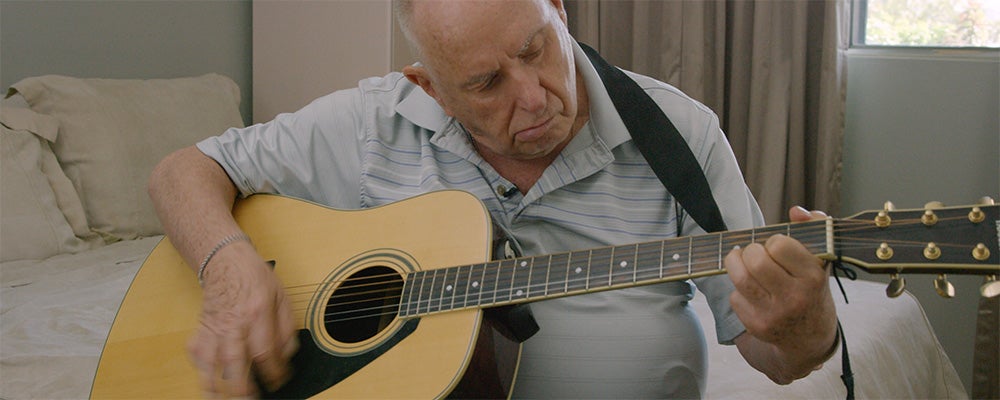
Most people have experienced the powerful emotions that music can elicit in the moment, and also how viscerally it can transport you to another time.
This emotional connection is particularly important for people living with dementia or Alzheimer’s, where research has shown that the brain areas tied to musical memory are untouched by the disease.
Highlighting this is a documentary with a Waterloo connection. Music is Life premieres on World Alzheimer’s Awareness Day (September 21) and showcases the benefits of musical engagement among a community living with dementia at the Dotsa Bitove Wellness Academy (DBWA) in Toronto.
“Music is a universal language that can move us physically, emotionally, relationally in ways that other things can’t,” says Sherry Dupuis, one of the researchers involved with the documentary and a professor in the Department of Recreation and Leisure Studies at the University of Waterloo. “It becomes even more important in the context of dementia because it can be one of the few ways that people with dementia can express themselves.
“Our connections to music remain even when the brain may be deteriorating, partly because it is embodied and connected to emotional memories.”
Dupuis is co-director of the Partnership in Dementia Care Alliance at the University and has more than 30 years of experience working with people with dementia and their care partners. She often uses participatory and arts-based research to promote culture change in dementia care.
Simon Law, a Grammy-winning songwriter, was there as part of the research project to assist persons living with dementia in writing and performing a song to show what music means in their lives today.
“The most prominent way that the arts are used in dementia care is as a therapy or intervention, often to ‘manage’ the misunderstood expressions of people living with dementia,” Dupuis says. “We didn’t want the DBWA to be about the disease and pathologizing people; we wanted it to be about supporting the humanity of people living with dementia through the arts.
“People with dementia in our research taught us how central music is in their lives; they see music as an essence of our humanity, a part of who they are.”
The DBWA was developed with a philosophy grounded in the research of relational caring being conducted by the team, which puts relationships and living life to the fullest at the core of dementia care and support.
“The DBWA recognizes the continued capacities for people with dementia to continue to learn, be in and contribute to relationships and views the arts as an important way to nurture relationships.”
Watch the live premiere on YouTube on September 21 at 7 p.m. ET, followed by a live Q and A.